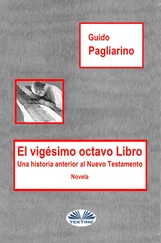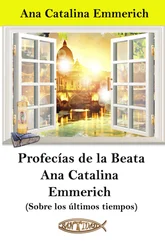It occurred to me that this McCabe might like the outdoors more than her heavier predecessor, who had huffed and puffed on our excursion on foot through Elmira. I organized an elaborate fishing trip on the Wanetka River, which would culminate in a picnic by Wanetka Falls. McCabe nodded in what I interpreted as acceptance, and one morning we drove out at sunrise to a point about twenty miles upstream, with the Judge’s old canoe on top of McCabe’s leased armored Land Rover and a food basket Petrona had prepared the day before.
With her bony frame slumped on the passenger seat and her eyes half-closed, McCabe seemed at ease for the first time since her return, maybe even modestly content. We drove in silence as the cratered pavement turned into gravel, then packed dirt, then rutted tracks, and back to pavement, only to resume the cycle in typical post-Reconstruction county-road fashion. Stealing road funds had always been an Elmiran passion, even when I was five, and this road felt buttery-smooth (until it disintegrated in winter, thus requiring spring re-buttering). Reconstruction was a frenzy of thievery, here more than anywhere else. With road monies now a quaint memory, it was every man for his own patch: gravel for the rich and absent (all of Round Hill), packed dirt for the local gentry still clinging to their revivalist dreams, mud and disintegration for all others, according to their means. Only downtown Elmira had two blocks paved with stolen federal military-grade pavement. I swerved right to avoid a boulder. McCabe gasped. “Look,” she said, pointing at a flock of birds flying in a V formation ahead of us. I shot her an open-mouthed glance. “Green-winged teals,” she added, clearly amazed that I didn’t know. “Going to winter on the Gulf Coast.” It was the first full sentence that had escaped her lips. She talked about the migration of gadwalls and teals for the rest of the trip in a deliberate way, often pausing to find the right word, or correcting herself whenever she felt she had been inaccurate.
In another era, McCabe’s sudden eloquence would have been considered a miracle. Now it almost landed us in a ditch, when I lost control of the car, stunned by the unexpected, if tentative, flow of words. I had concluded by then that McCabe had become autistic. My awe soon turned into suspicion. I slowed down to a crawl for the rest of the trip, so I could record in my mind every single word she said, to analyze it later in my room, sitting at the Judge’s desk. Was McCabe’s past muteness and sudden interest in ornithology a deliberate front, a diversionary maneuver to cover whatever she was up to? (I did not think yet to add: or whoever she had become—or, worse, whoever she may have always been under the head-to-toe Moschino leather.) Or was it an outpouring of forgotten memories, unguarded by her now emaciated body and crumbling willpower?
“The Biloxi Marsh is their promised land,” she said with sudden emotion. “Men never conquered it.” I glanced at her and thought I saw tears in her eyes, but it was such a fleeting image that I cannot be sure. We were on a dusty stretch of the road with less than perfect visibility. Her voice was calmer now, almost dreamy, like someone reminiscing about their childhood. “On Christmas Day, 1624,” she said, “Pedro de Horta built a settlement at the southern tip of the marshes and left there a garrison of eighty men. When he returned from New Spain, what we call Mexico, a year later, he found only a man—a blacksmith named Álvaro Ejido—and a dog. Both were dying, curled up in a cot inside the soldiers’ mess room, a round mud-walled shack with dry grass roofing. Ejido pointed to where his seventy-nine companions had been buried, first in neat rows marked by wooden crosses, then in trenches for six or eight, and finally in a deep pit, layer upon layer of corpses, separated by thin layers of mud. The last two had died within hours of each other, about a week before Pedro de Horta’s arrival. By then, Ejido was too weak to bury them. Their rotting bodies still lay on their cots, in the larger, rectangular mud-and-grass shack that was the soldiers’ barracks. Pedro de Horta was afraid the men had died of the plague, so he ordered the entire compound to be burnt down, along with Ejido and the dog, now both dead, and the two rotting soldiers. Pedro de Horta chose two marranos —not pigs, but insincerely converted Jews—to carry out his order, because he was not going to risk the life of a born Christian. The marranos, always eager to please so that their original sin and subsequent duplicity might be overlooked in the New World, or at least not passed on to their children, covered their noses and mouths with their shirts and piled enough grass on top of the four corpses (counting the dog) to set a good fire….”
I interrupted, to show her that I was attentive to her story: “Like a Hittite funeral pyre.” She glanced at me. It was an imperceptible glance, but I caught it on the edge of the rearview mirror. There was that same little smile on her lips I had noticed when I invited her to go fishing, but in her eyes I saw (or imagined I saw) a flash of indulgence, as when we forgive a small child for committing an imperfect crime, like stealing a cookie and forgetting to brush the crumbs off her face.
“They set them on fire,” she continued, looking out the window and ignoring my interruption, “but when the grass was consumed the bodies underneath were only half-charred. The two marranos had to repeat the operation seven times (pile up the grass, set the fire, wait until the fire died, root with long tree branches into the smoldering grass to uncover what was left of the bodies, repeat). In the meantime, Pedro de Horta and the rest of his (Christian) men waited for them aboard their ship. Around the time of the fifth torching, the men threatened mutiny if they did not sail immediately. De Horta later wrote in his diary that he considered abandoning the two marranos in the marshes, but that the faces of the would-be mutineers, contorted by fear into the shape of wolves, made him change his mind. He held off his men, with whippings and prayers, through two more torchings, until the marranos came back on board. They were isolated in the bowels of the ship until they arrived in San Cristóbal de La Habana, a week later, but neither of them got sick, De Horta reported in his diary. The two marranos asked his permission to stay in the city and he granted it, since they were now old and had served him well for many years. This was the first and only time men tried to colonize the marshes.” McCabe closed her eyes and seemed to doze. We were reaching the river. “What did the men die of?” I asked. “Does it matter?” she said, her eyes still closed.
We sat in the canoe in silence, transfixed by our fishing rods and the dark green water, avoiding each other’s gaze. It became scorching hot. We did not catch any fish. McCabe insisted on carrying the picnic basket alone all the way to Wanetka Falls, about two miles up on foot and then down a steep, rocky path. She swayed under the basket’s weight and, a few times, staggered and almost lost her footing, but she cut me off with a sharp “No, thanks,” when I offered to help. I walked a few steps behind her, so I don’t know if her face showed tiredness or any emotion. When we finally sat under a weeping willow overlooking the Falls, she looked perfectly fresh.
I told McCabe how I used to picnic under this willow every Sunday in August with my parents and grandmother. I left out the Cohens, who always came along. It must have been my instinctive prudence. Call it paranoiac reflex, if you wish. While I almost never lied, I always suppressed some facts, the reasons opaque even to myself, more like unformed forebodings bubbling up from some subconscious cesspool of fear than reasons in the strictest sense, that is, reasons as a product of the brain’s actuary function, which also churns out shopping lists and tax returns. Seldom did I tell a story about myself that had not been cleansed of certain details that I feared could be used against me. Ninety percent of them were completely trivial. However, I felt safe only if I had taken something out of a story and hidden it in a mental lockbox. How did I get to be so secretive? Being a spic in Elmira and a homo to boot? Or did it have a genetic basis? Survival of the secretivest. Not a bad thing in spite of its ugly hiss.
Читать дальше












